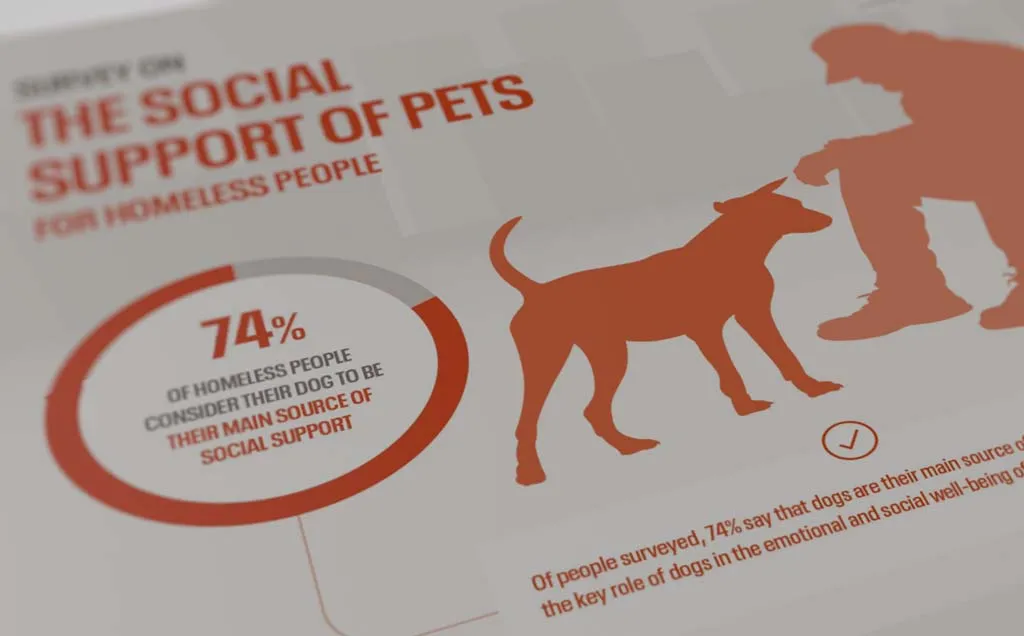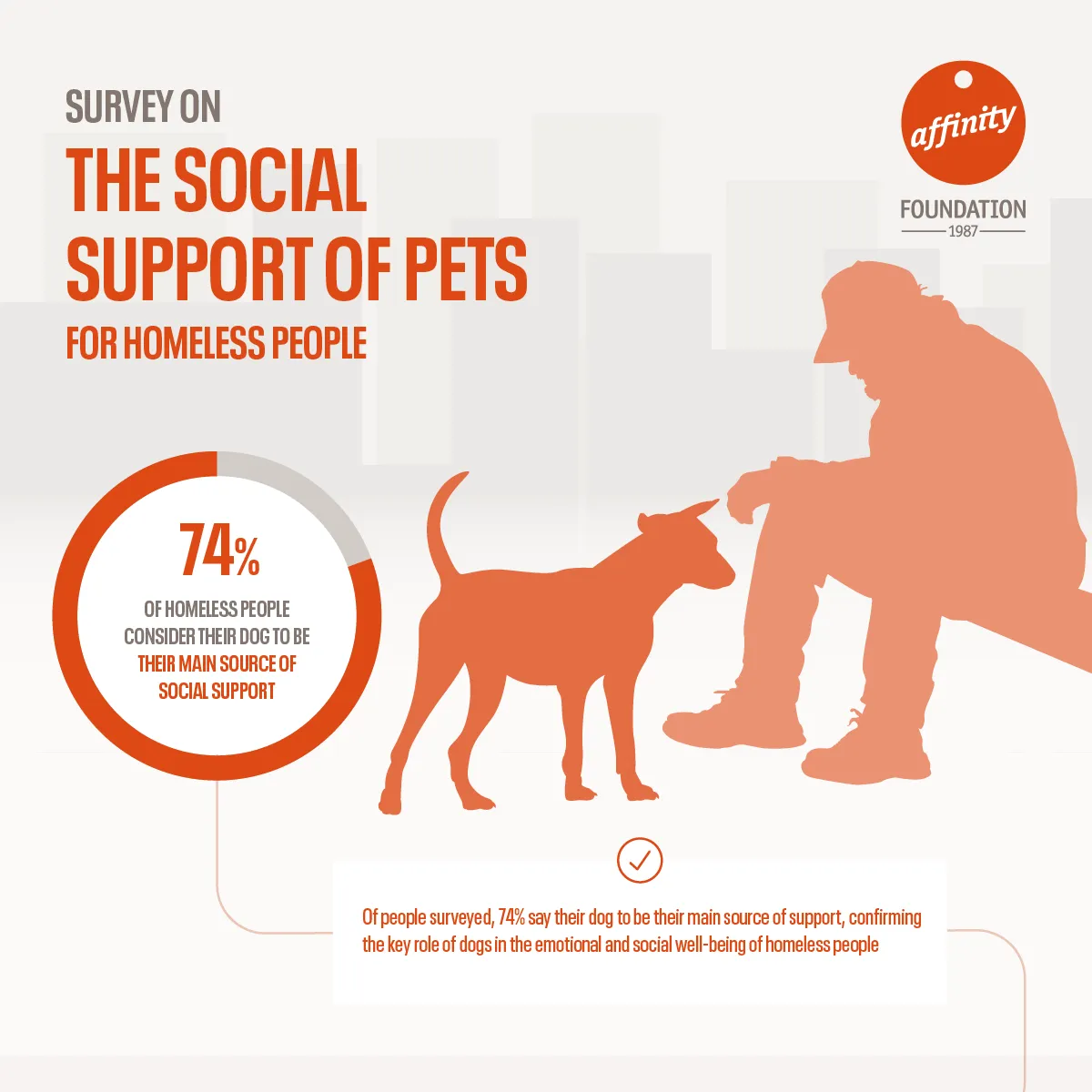The role of dogs as a source of social support for people

The Affinity Foundation Chair is dedicating a portion of its resources to understanding the role of dogs as a source of social support for people. Better understanding the importance of this role can help us to strengthen the human-animal bond and to develop programmes that promote the benefits of living with dogs and cats, improving people’s quality of life and promoting respect and care for animals.
The role of dogs as a source of social support for people
The term social support refers to the network of people that someone can trust when they need emotional, physical, financial or other support. It is an important factor for maintaining good health, both mental and physical.
In this sense, dogs can be a valuable source of support, especially in situations where connections with other people are limited or difficult to access.
What Affinity Foundation wants to research
The intention behind our research is to help increase understanding about the specific role dogs play as a source of social support for people. Because, although there is evidence that animals help us at difficult times, we still don’t know how this support compares with that from other sources, such as family and friends.
How do we conduct this research?
Firstly, we need to develop a survey or a scale that is scientifically valid to evaluate the social support people receive from their dogs. This will not only help us quantify the support in general terms, but will also allow us to identify which aspects of support are unique and specific to the human-animal relationship.
At the end of the investigation, we will have a quantifying tool to evaluate the social and emotional support that dogs provide to the people they live with.
What other factors will we understand better?
The most significant aspects of social support in the relationship that a person establishes with a dog.
How the social environment, family structure and availability of other sources of social support influence the benefits that living with a dog has.
What barriers prevent people enjoying or accessing the social support they can receive from their dog.
At the Affinity Foundation, we are trying to better understand the role of dogs as a source of social support, how this compares with the support they receive from people such as family and friends, what factors have an influence on the value of this support and what barriers prevent some people reaping the full benefits of it. Ultimately, we want to dig deeper into how dogs contribute to the social and emotional wellbeing of their pet parents and of society as a whole.
What is social support?
Social support is much more than just having company. It is having individuals whom we trust, who provide us with a sense of belonging, who protect us, care for us and help us in times of difficulty. This support can come from our family, friends, work colleagues and, of course, also from our pets.
It is a key protective factor for our physical and emotional wellbeing, defusing the negative effects of stress and promoting healthy behaviours.
How does social support influence our physical and mental health?
A range of international institutions highlight the crucial impact that social support has on people’s physical and mental health. The WHO (World Health Organization), for example, has recently launched the Commission on Social Connection, which highlights the fact that a lack of social connection significantly increases the risk of cardiovascular diseases, diabetes, dementia, depression and anxiety. In fact, people who lack social connection have a 30% higher risk of premature death, an impact that is comparable to smoking, excessive drinking or obesity.
What is social health and how does it affect us?
Social support is part of a broader concept known as Social Health. Social health includes three essential dimensions: social isolation, social support and loneliness.
Social isolation: an objective measure of the quantity and quality of our social relationships. How often we interact with others and with whom.
Social support: a subjective measure that reflects how we perceive the availability and effectiveness of the individuals we live with. It is not only important how many people we know, but how we experience their closeness and support.
Loneliness: the subjective and emotionally negative experience of feeling isolated. It comes as a result of the balance between the amount of social contact we would like to have and the amount we actually have. Thus, a person can be isolated, but not feel lonely. They can be surrounded by many individuals and still experience a profound feeling of loneliness and lack of support.
What can we do to improve our social health?
Social Health is largely determined by general factors such as employment conditions, access to education and to public services. However, there are two strategies that depend largely on us, and that can help us to improve it. One is spending time with family and friends: fostering healthy social relationships requires investing time and attention. The other is choosing our relationships and, whenever possible, trying to surround ourselves with individuals who contribute positively to our wellbeing.
In this sense, pets are a very important source of social support for people. They are always available, they do not judge us, and they make us feel loved and valued, especially in difficult times or when, for various reasons, we cannot access other sources of support.
Social Support Study
The Affinity Foundation’s study in collaboration with FAADA on the social support of pets for homeless people
The Affinity Foundation’s study in collaboration with FAADA on the social support of pets for homeless people explores the deep and significant bond that develops between people living on the streets and their pets. This study aims to understand how animals, especially dogs, become a crucial source of emotional support, safety and company for homeless people. Our study also analyses how these bonds influence these people’s psychological and social wellbeing, providing a valuable perspective on the role of dogs in situations of vulnerability and social exclusion.



